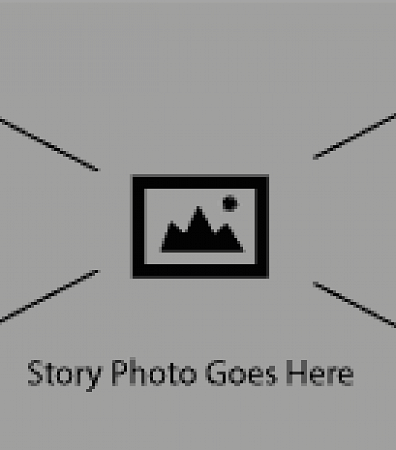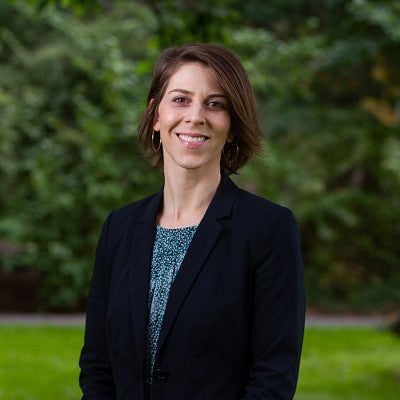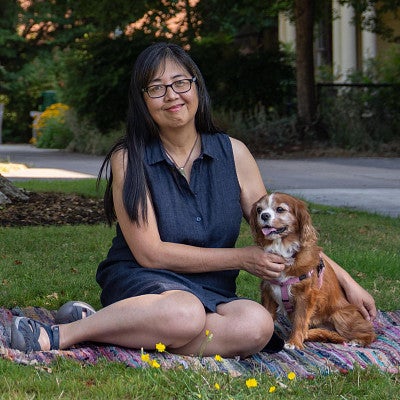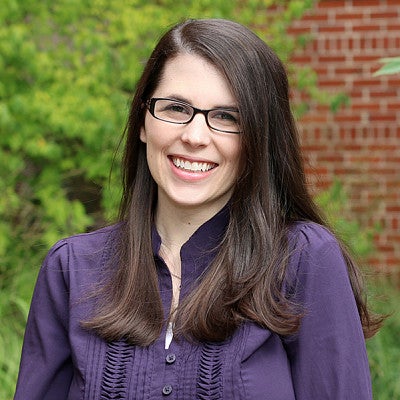The Provost Fellows Program galvanizes the Office of the Provost's faculty support programming, centers faculty insights, and provides a significant new professional development opportunity for faculty who are interested in academic leadership.
Leah Schneider
TEACHING FELLOW
Senior Instructor 1 of Marketing, Marketing Department

What does it mean for you to be selected?
Being selected as the Teaching Fellow for the AY 2023-2024 is an immense and humbling honor. The University of Oregon has a wealth of pedagogically-minded educators who are continually seeking and developing innovative teaching methods and strategies so as to provide superior learning opportunities within the classroom. To be named as the Teaching Fellow from this incredibly talented and mindful peer group is a special honor for me. I love teaching; being in the classroom and going on the learning journey with my students every term is one of the greatest professional joys I get to experience. I am excited for this opportunity to serve the university in this capacity over the coming academic year, and to translate my passion as an educator to the broader, university-wide conversations happening and tools being developed to support and facilitate pedagogical excellence.
What key aspects of your work or interests related to the Fellowship would you like to highlight?
I have taught at the university level for 12 years and have had the privilege of teaching face-to-face courses and developing and teaching three different asynchronous courses for my department. From my experiences, I have seen the benefits that come from offering courses in different modalities for faculty and students. The process of designing and teaching courses asynchronously, in particular, challenged my own status quo norms and practices within the classroom. Having to carefully consider every aspect of a course while it was in development led me to incorporate new elements such as universal design standards, as well as reconsider, modify, or create new components such as the methods of assessment, student engagement, student supports. The asynchronous course development experience has meaningfully impacted my development and efficacy as an instructor as a result. For students, I have seen student success positively influenced when an aspect of a course’s modality aligns with their needs during a given term – e.g., being able to complete work more on their time-table in an asynchronous course can facilitate a student’s success during a term when they have significant out-of-school responsibilities. On the other hand, my experiences have also caused me to become more inquisitive about the complexity and challenges relating to course modality offerings, as faculty, administration, and student needs and constraints have to be considered and balanced. I am very excited to explore these complexities, building on what preceding Teaching Fellows have done, so as to create tools that can facilitate purposeful decision-making and modality scheduling for academic units across campus.
What change are you trying to effect more broadly as related to your Fellowship?
The most significant outcome that I am hoping to achieve as part of this Fellowship would be to facilitate mindful, informed course modality decision-making. During the pandemic, it felt that we as a university were in survival mode with scheduling and course modality decisions/staffing. However, because of the pandemic, we had an exponential increase in asynchronous, hybrid, and Hy-Flex course development, and have first-hand experiences with and knowledge of the advantages and challenges that correlate with course modalities. With the reality of multiple course modalities being part of our university moving forward, it is important we establish a foundation for mindful, informed course modality decision-making in ways that best balance administrative, faculty, and student needs, and that these decisions are informed by data insights. This means that decision makers in academic units need to have accessible and impactful information about course modalities and guidance of how to approach modality decisions for the diverse courses we offer. Ultimately, the outcome of mindful, informed course modality decision-making would be that each and every course is being offered in modalities that make best use of administrative resources and constraints, align with faculty interests and skills, and amplify student success.

Jo Weaver
LEADERSHIP FELLOW
Associate Professor, Global Studies and Director, Global Health Program

What does it mean for you to be selected?
I'm honored to be recognized as someone with interest in supporting leaders at UO. I am a strong believer in transparent, collaborative leadership practices and have a background in peer coaching and mentorship that I hope to use to develop innovative programs that will improve the culture of leadership at UO.
What key aspects of your work or interests related to the Fellowship would you like to highlight?
I hope to develop resources to better support faculty who serve as leaders in their departments – including department heads, who do one of the toughest jobs on campus.
What change are you trying to effect more broadly as related to your Fellowship?
By developing resources to better support faculty leaders, my ultimate hope is to make those leadership positions more accessible to a wide range of faculty who have historically been excluded from them. Faculty with caregiving or other non-work responsibilities, for instance, are often not recruited to leadership roles. But by allowing that pattern to continue, we systematically exclude groups who tend to shoulder more of those responsibilities in our society. That ultimately hobbles our development by narrowing diversity in leadership. By providing more support for faculty in those roles, I hope we can chip away at that pattern of systemic exclusion.

Kaori Idemaru
MENTORSHIP FELLOW
Professor, Japanese Linguistics

What does it mean for you to be selected?
I was both excited and nervous to apply for the fellowship because mentorship has been very important to me, but this role comes with heavy responsibilities to live up to. Throughout my life and career, I have had a network of mentors for different areas of my life, from research to administration to health and wellbeing. I owe it to them to have gotten to where I am now. Their guidance resonated with me, and I wanted to get involved in mentoring, too. This is a great professional development opportunity. I will give it my all and will be getting a lot out of this experience. My understanding of mentorship is based on my own experience but not systemic studies. I am excited to understand this more deeply and dedicate my energy to advancing it here at the university.
What key aspects of your work or interests related to the Fellowship would you like to highlight?
It’s instinctual to build relationships with many people to succeed. As a person of a minority background, I knew I needed help, and I was motivated to build relationships. My senior colleagues know so much and are always willing to help me. I always enjoyed working with my advisors as these relationships consist of both friendship and mentorship. Because of my positive experiences and having benefited from having great mentors, I enjoy working with people who are on a path to growth.
What change are you trying to effect more broadly as related to your Fellowship?
My goal over the next year is to improve the wellbeing of the campus community by creating a consistent and easily adoptable method of mentorship. I want everybody on campus to know a handful of tactics for building a mentor network and to learn more about what a mentor looks like.

